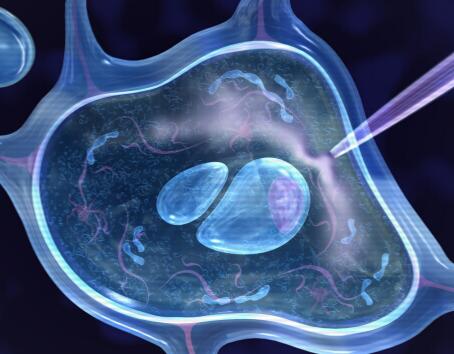Recently, researchers from Georgia State University and Tufts University have found that folic acid can stimulate stem cell proliferation through in vitro culture and animal model systems, which does not depend on its role as a vitamin, and the relevant research was published in the international journal Developmental Cell.
Folic acid, whether it is a supplemental B vitamin or a natural folic acid sourced from food, is necessary for the normal functioning of all cells in the body and is critical to preventing developmental defects in newborns. In the article, the researchers first found that adult stem cell populations can be controlled by a factor derived from the outside of the animal body, that is, folic acid from bacteria, such as nematodes models such as Caenorhabditis elegans.

Researcher Edward Kipreos said that our study shows that germ stem cells in caenorhabditis elegans can be divided by folate stimulation from the bacterial diet; folic acid is a necessary B vitamin, but the researchers found that the ability of special folic acid to stimulate germ cells may not depend on its role as a B vitamin, which may indicate that folic acid plays a role directly as a signaling molecule.
Naturally occurring folic acid tends to come in many chemical forms, such as folic acid in food or the metabolically active form of folic acid in the human body, and folic acid is also present in a major synthetic form in fortified foods and vitamin supplements. Folic acid was discovered in 1945, since the date of its discovery, many researchers have studied it a lot, and now there are more than 50,000 research papers related to folic acid, but this study is more special, because the study reveals a new role of folic acid, rather than the role of folic acid revealed in previous studies.
Folic acid is currently added to cereals in the United States and other countries, and folic acid supplementation can significantly help reduce the birth of babies with neural tube development defects, but folic acid's role of not relying on vitamins may help it provide a secondary pathway to the human body. In the article, the researchers found that a special folate receptor called FOLR-1 is necessary to stimulate the growth of reproductive stem cells in the body of Caenorhabditis elegans.
At the same time, researchers have also observed the process of FOLR-1 receptors promoting germ cell tumors in caenorhabditis elegans, which may be similar to the process of folic acid receptors stimulating the progression of special cancers in human organisms; of course, the receptors may not be necessary for transporting folic acid into cells for vitamin use, but they can stimulate cell division. Finally, the researchers say that the study may also provide us with a new tool to help study the main genetic model organisms.
Post time: Mar-30-2022

